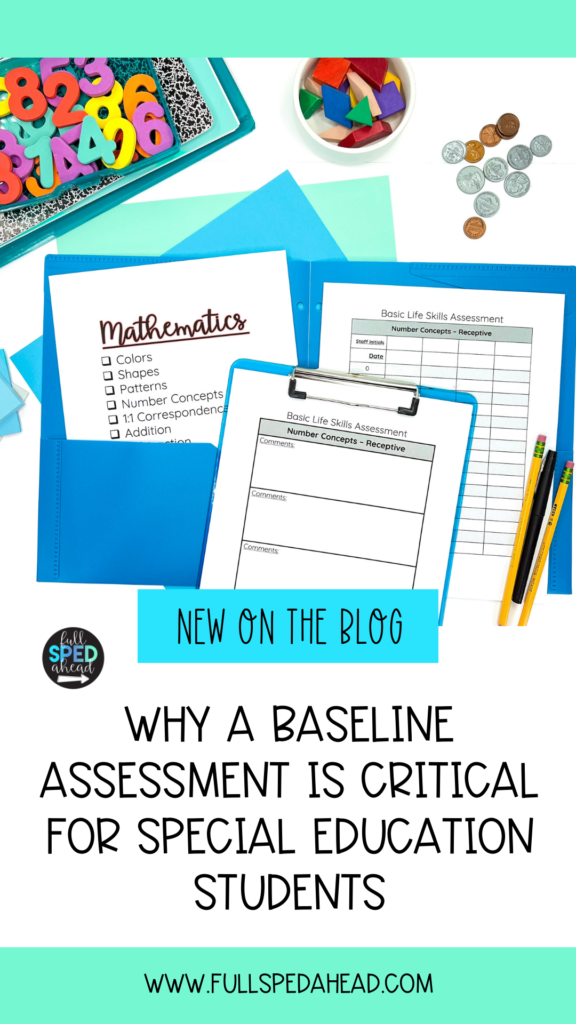As special education teachers, we understand the importance of providing individualized instruction to our students. One powerful tool that can help us tailor our teaching to meet their specific needs is the use of a baseline assessment. These assessments serve as a starting point to understand students’ current abilities and guide our instructional planning. In this blog post, we will explore the significance of assessments and how they can be effectively used to individualize instruction. We will also highlight a valuable resource, the Kindergarten Basic Skills Special Education Assessment available on Teachers Pay Teachers.

Baseline tools are comprehensive evaluations designed to measure students’ skills and knowledge at the beginning of the instructional period. They provide a snapshot of students’ abilities, strengths, and areas requiring further support. By conducting an assessment, we gain valuable insights into where our students are starting from, allowing us to tailor our instruction to their specific needs and abilities.
These assessments play a crucial role in individualizing instruction for special education students. They help us identify students’ strengths and weaknesses, allowing us to target areas that require additional support. By analyzing the assessment results, we can determine each student’s unique learning profile, preferred learning styles, and specific areas where they may struggle. This information enables us to develop personalized learning goals and strategies to address their individual needs effectively.
The Basic Skills Special Education Baseline resource available on Teachers Pay Teachers is an invaluable tool for special education teachers. This comprehensive assessment covers various essential skills for kindergarten students and includes detailed data sheets to track individual student progress. By utilizing this resource, teachers can assess students’ abilities in areas such as letter recognition, phonics, counting, and more. The data sheets allow for easy documentation of student performance, making it easier to track progress over time and make informed instructional decisions.
With baseline data in hand, special education teachers can tailor their instructional strategies to meet each student’s needs. For example, if the assessment reveals that a student struggles with letter recognition, the teacher can design targeted activities to strengthen this skill. By providing explicit instruction, multisensory approaches, and ample practice opportunities, teachers can help students make significant progress. The baseline data also guides the selection of appropriate materials, interventions, and accommodations to support students in their learning journey.
Baseline assessments are not one-time events but serve as the foundation for ongoing monitoring and adjustment of instruction. As teachers work with their students, they can periodically reassess and compare current performance to the baseline data. This allows them to gauge student growth, identify areas of improvement, and make necessary adjustments to their instructional strategies. By regularly reviewing and analyzing student progress, teachers can ensure that their instruction remains targeted and responsive to individual needs.
An assessment provide special education teachers with valuable information to individualize instruction and support the unique learning needs of their students. By using assessments like the Kindergarten Basic Skills Special Education Baseline Assessment, teachers can identify students’ strengths, weaknesses, and monitor their progress over time.
Learn more about this assessment tool to monitor student growth.

What are you looking for?
COPYRIGHT © 2025 Full SPED Ahead